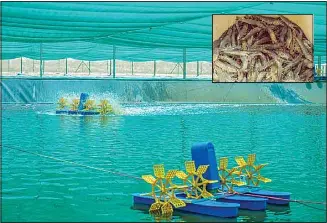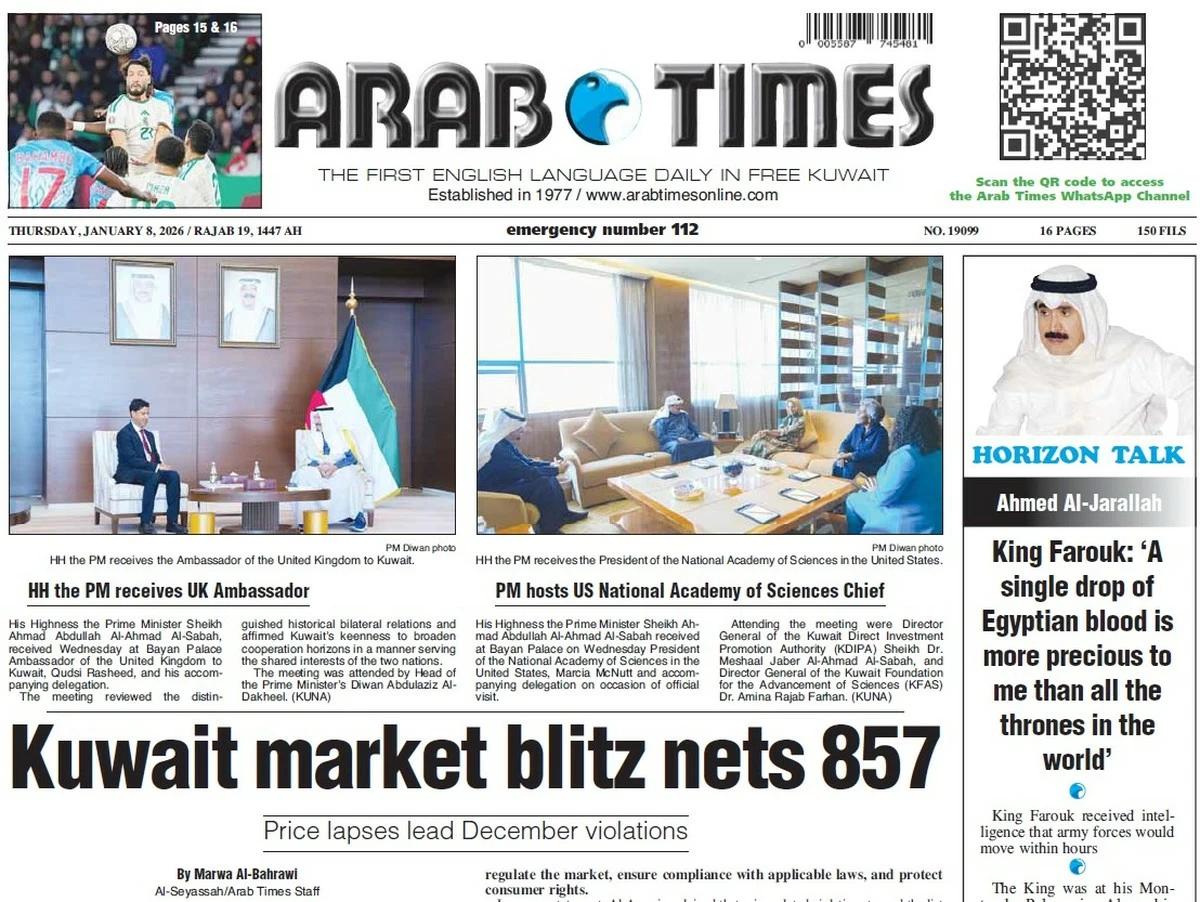10/07/2025
10/07/2025

KUWAIT CITY, July 10: The Kuwait Institute for Scientific Research (KISR) announced on Thursday the successful production and marketing of locally farmed shrimp for the fourth year in a row, affirming its commitment to strengthening the country’s food security and advancing the aquaculture sector in line with the national "New Kuwait 2035" vision.
The announcement was made during the "Shrimp Harvest" event held at the Kabd Research and Innovation Station, under the patronage of KISR’s Acting Director General, Dr. Faisal Al-Humaidan. The event reflects the institute’s broader efforts to promote sustainability, self-sufficiency, and innovation in food production.
Dr. Shireen Al-Subaie, a scientific researcher at the Environmental and Life Sciences Research Center and head of the Sustainable Economic Shrimp Farm Project, highlighted that this year’s achievement marks a key milestone in the commercial-scale development of aquaculture in Kuwait.
She noted that farmed shrimp reached an average market weight of 20 grams, with production rates exceeding 2 kilograms per square meter—an impressive yield attributed to extensive scientific research and the application of advanced intensive farming technologies. These techniques have proven effective in overcoming the challenges posed by Kuwait’s groundwater conditions and harsh climate.
Dr. Al-Subaie emphasized that this year’s success also included the first-ever commercial marketing of locally farmed shrimp within Kuwait, a critical step in reducing the country’s dependence on shrimp imports, which currently meet more than 70 percent of domestic demand.
The shrimp farming was conducted using innovative, eco-friendly biofloc technology, which recycles water continuously without using chemicals or antibiotics, resulting in a safe and environmentally sustainable product.
KISR has made significant progress in adapting this complex biofloc system to work with low-salinity groundwater—a scientific challenge not only due to the salinity level but also because of the water's unbalanced ionic composition. This breakthrough opens the door to greater private sector involvement, new investment opportunities, and job creation for national talent, aligning with Kuwait’s sustainable development objectives.
Looking to the future, Dr. Al-Subaie revealed that KISR has submitted a proposal under the government initiatives program to establish a large-scale "Economic Complex for Fish Farming" at the Bar Ghadi site. The proposed complex would cover an area of 100,000 square meters and produce up to 1,200 tons annually of various species including sea bream, grouper, tilapia, and shrimp. It will also include feed production and fish product manufacturing, offering a strategic leap forward for Kuwait’s food security.


